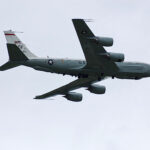Lately, the Kremlin has returned to the tactic of nuclear weapon intimidation. On October 7, Russian media reported the deployment of the “Yars” strategic missile system capable of carrying nuclear weapons on combat duty.
Possible Impact Scale
This step raises concerns as the range of the “Yars” missiles reaches 11,000 kilometers, and its power is equivalent to a million tons of explosives. Such a warhead could destroy a small city, escalating tension both within society and among international leaders.
Probable Target
One of the main questions is which country’s territory Russia could target with nuclear weapons. It is evident that the target would not be the EU, as that would essentially be a death sentence for the Kremlin. Moscow is not so foolish in its aggression. Therefore, if such weapons were to be used, it is safe to say that Ukraine would be the likely target. There are quite objective reasons for this.
As the global community has repeatedly shown that it does not view aggression towards Ukraine the same as attacks on other European countries, even after a nuclear strike, the same rhetoric of how to respond correctly and cautiously to such actions to prevent further escalation would likely follow.
But is there a real threat of Russia actually using nuclear weapons?
On the One Hand
The Kremlin has hinted several times at the possibility of using nuclear weapons, especially in the context of the war with Ukraine. Sergey Lavrov, the Russian Minister of Foreign Affairs, mentioned in August 2024 that Russia’s nuclear doctrine is being “clarified,” a fact well known to Western politicians.
And while this may be another attempt at intimidation, it is important not to forget that Russia is indeed actively modernizing and testing its nuclear forces, including the “Yars” complex. Some analysts believe that in the event of a serious military defeat or if the Russian leadership senses a threat to its power, they may consider using tactical nuclear weapons as a means of maintaining control.
On the other hand
However, international experts, including Kurt Volker, an ambassador and former U.S. special representative for Ukraine, believe that threatening the world with nuclear strikes is part of Russian psychological pressure tactics. At the same time, most analysts agree that the Kremlin understands very well the consequences of such a step. A retaliatory strike from the U.S. or NATO could lead to the complete destruction of the Russian state.
It is also important to note that despite its aggressive rhetoric, Russia is still trying to avoid direct conflicts with the West, as it would mean guaranteed destruction.
What’s next?
Despite the nuclear threat from Russia remaining realistic in their rhetoric, the use of nuclear weapons is still considered unlikely due to unforeseeable consequences. International partners such as the U.S. and the European Union continue to restrain Russia through diplomacy and sanctions. But will this be enough to prevent more serious actions?


